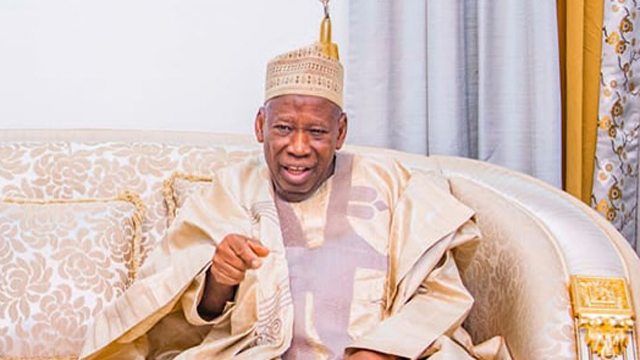
….as Sultan of Sokoto decry politicisation of conflict
Determined to ensure a peaceful relationship between farmers and herders, Governor Abdullahi Umar Ganduje has thrown his weight behind the establishment of ranches in the country.
Ganduje’s position was endorsed by the Vice president of the Islamic Development Bank, Mansur Muhtar who said it was unfortunate that between 2016 and now, at least 4000 people lost their lives in the recurring conflicts between farmers and herders, with several thousand others sustaining injuries, both physical and emotional.
The duo spoke yesterday during the opening ceremony of the national conference on livestock reform and mitigation of associated conflicts between herders and farmers held in Abuja.
Ganduje maintained that the Rural Grazing Areas (RUGA) remains the only option that would go a long way in mitigating existential problems, as pastoralists would have lands to graze without cattle encroaching on people’s farmlands.
This, he argued was because herders need fodder for their cattle and promoting alternative means of producing feedstock, which reduces the need for grazing land.
Ganduje remarked that nomadic pastoralists need to be persuaded to move their cattle into established ranches and public grazing reserves, where breeding farms and other mechanized livestock management practices would bolster the sector’s productivity.
He noted: “Modernising the livestock sector is not only key to resolving the herder-farmer conflict, but was envisaged that this economic investment pillar will support and strengthen the development of market-driven ranches for improved livestock production through breed improvement and pasture production.
“There is therefore the need for aiding information, education and strategic communication on the development of grazing reserves to mitigate the consequences of these conflicts.”
Decrying the spate of killings and destruction of homes due to the conflict between herders and farmers, he observed that climate change which resulted in desertification and soil erosion has enraged competition over natural resources, pushing herders to venture into new areas to seek pasture for their herds.
He said the weakness of state institutions and lack of infrastructure has resulted in the inability of governments to effectively control their territory, enforce the law and provide formal avenues for the peaceful resolution of disputes.
He added: “The ‘politics of transhumance’ also highlights the interplay among political elites which can manipulate political tensions between herders and farmers to advance their agendas, expand land ownership and take control of large herds for their economic and political gains, consequently threatening livelihoods of both communities.”
Muhtar who is the vice president of the Islamic Development Bank (IDB) expressed support for the establishment of ranches adding that it was unfortunate that the agriculture promotion policy (APP) 2016 -2020 as well as the National Livestock Transformation Plan (NLTP)[6], approved in 2019 is yet to see the light of the day.
He added: “The NLTP proposes the ‘development of market-driven ranches in 7 pilot states (Adamawa, Benue, Kaduna, Nasarawa, Plateau, Taraba and Zamfara) for improved livestock productivity through breed (genetic) improvement and pasture production’.
“It is envisaged that these ranches will operate as an integrated business and will involve many aspects, including (i) the development of commercial crop production to support livestock through the supply of fodder; (ii) the formation of producers into clusters to create viable ranch herd sizes and; (ii) the creation of cooperatives to facilitate increased access to inputs, infrastructure, finance, markets and support services.
“The government hopes that by the end of 2028, there will be at least 119 ranches operating in all participating states. This is a very ambitious plan that if well implemented could lead to a radical transformation of the livestock value chain and will go a long way in reducing the tension between farmers and herders.
“Unfortunately, more than 3yrs into its launch, a single ranch is yet to be built. Limited public engagement and buy-in have undermined the legitimacy of the plan while funding constraints and lack of ranch development expertise have hampered its progress.”
At the event graced by no fewer than 500 stakeholders including academics, development experts and transitional leaders, the Sultan of Sokoto, Muhammadu Saad Abubakar decried the politicisation of the farmers-herders clashes.
He called for the revisit of the ECOWAS treaty on the proliferation of small arms and light weapons which are abused by migrant herders from neighbouring west African countries.
Urging conferees to revert to the report on the farmer’s herders clashes when former President Goodluck Jonathan was at the helm, he said dialogue, coupled with the involvement of traditional leaders would come in handy in conflict resolution between farmers and herders across the country.



